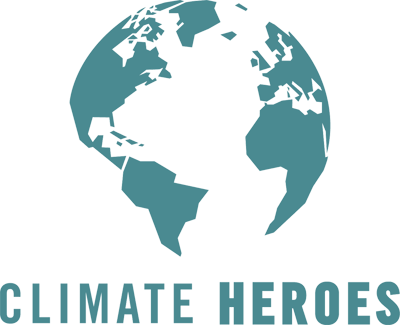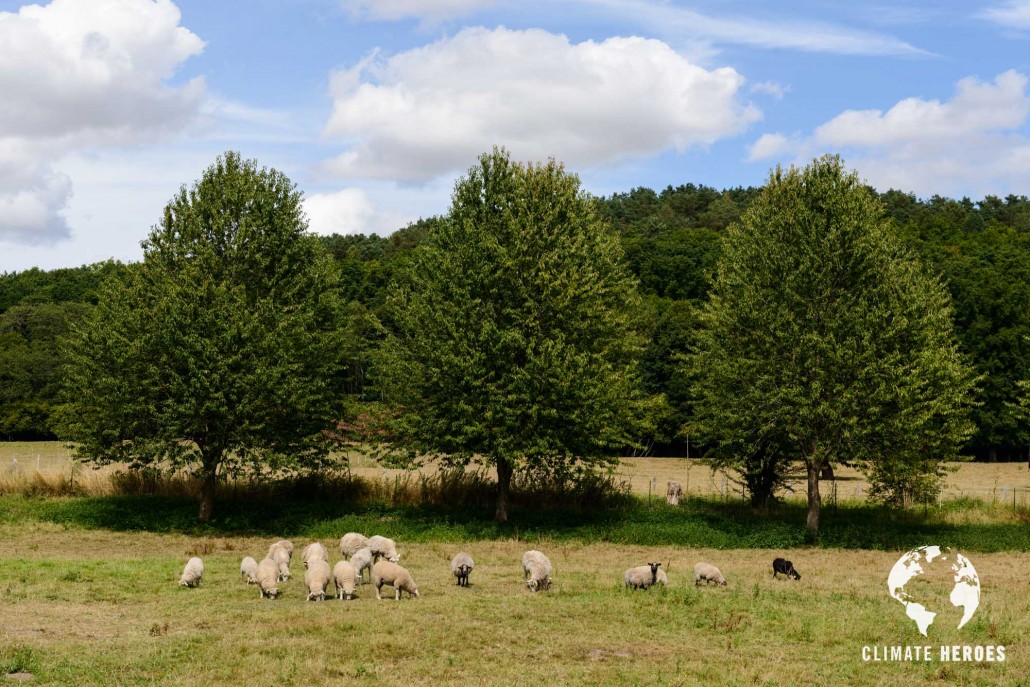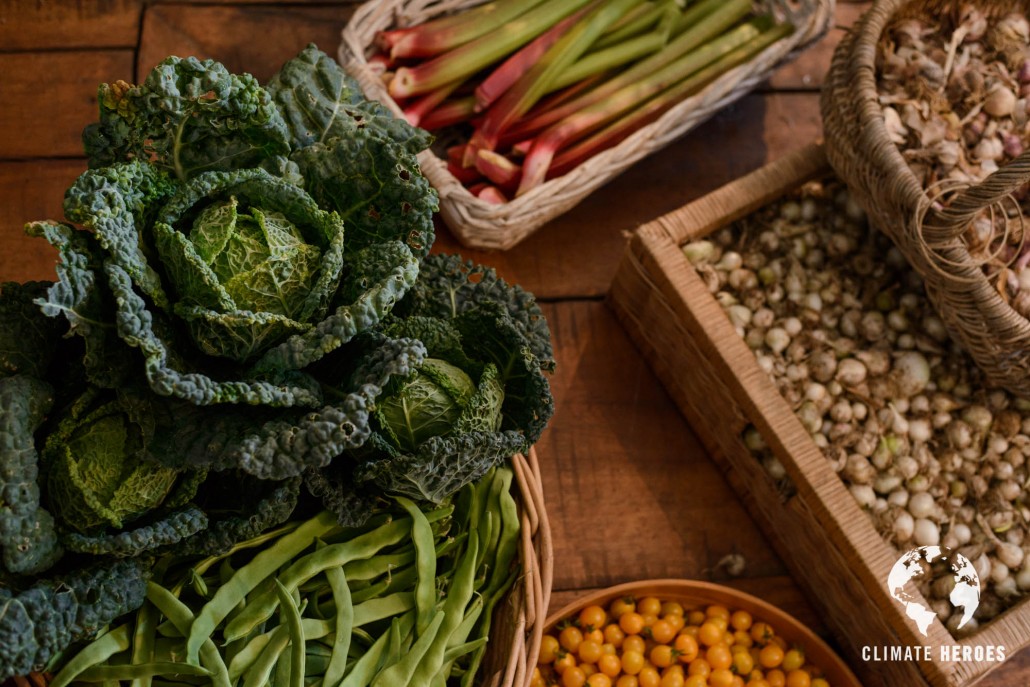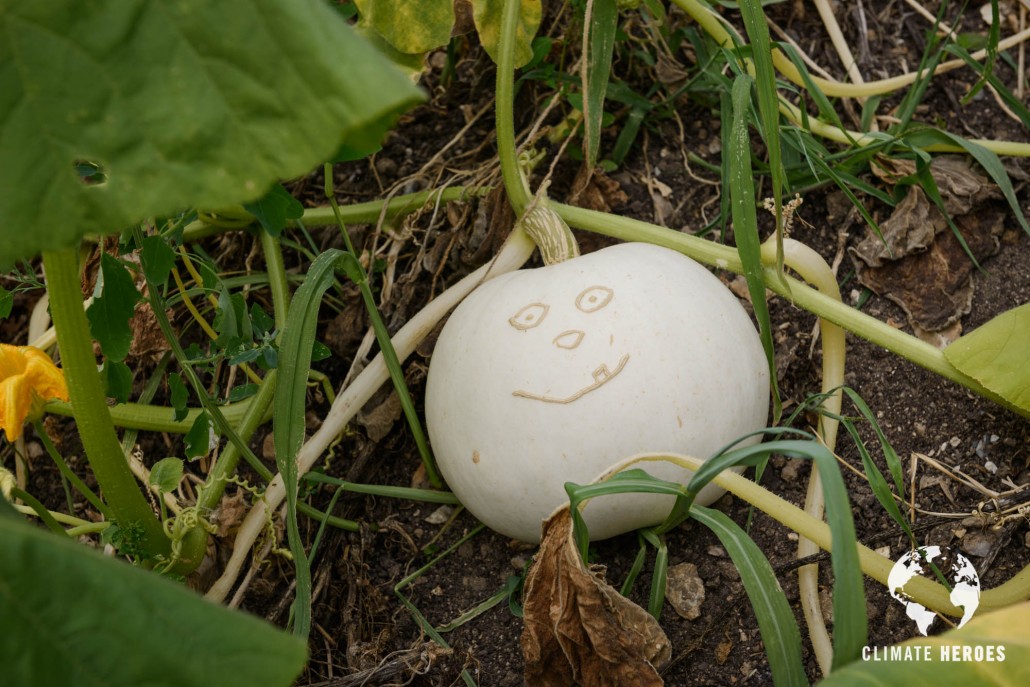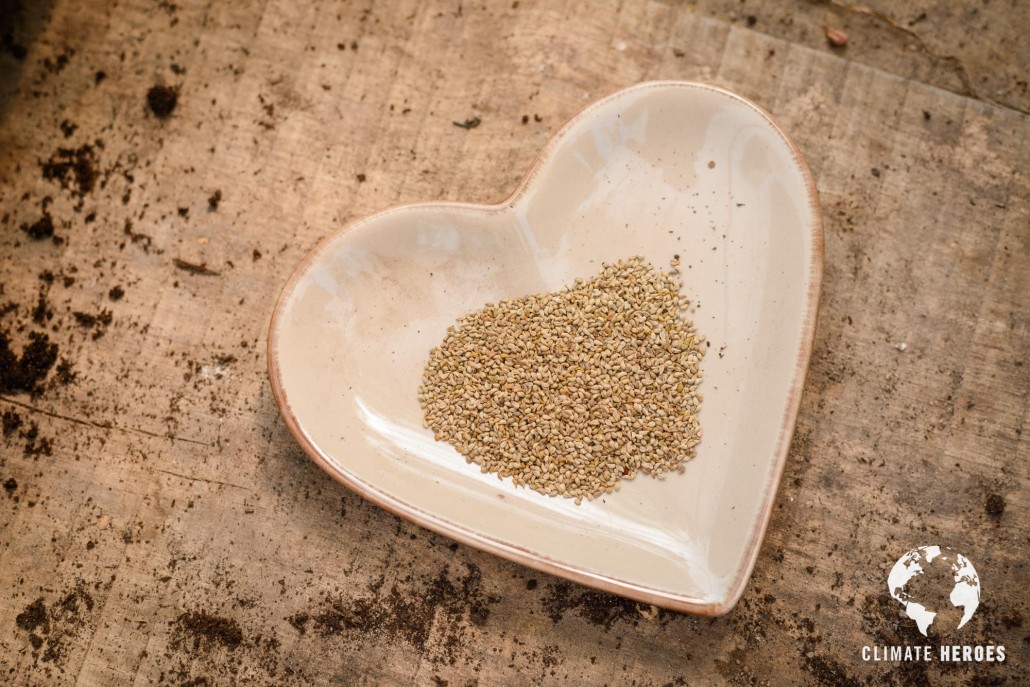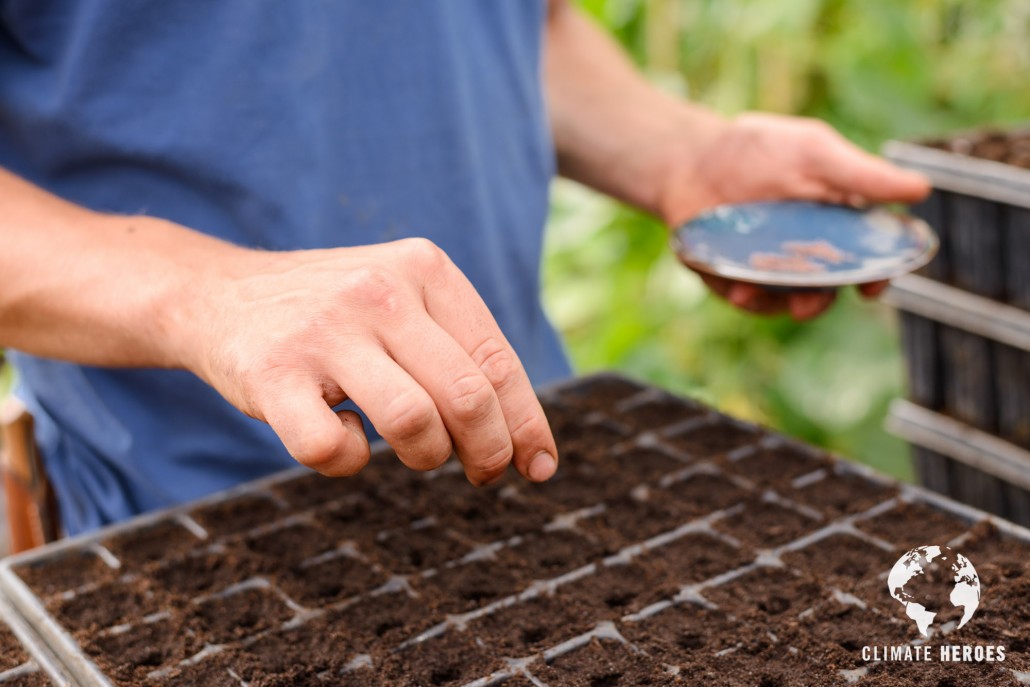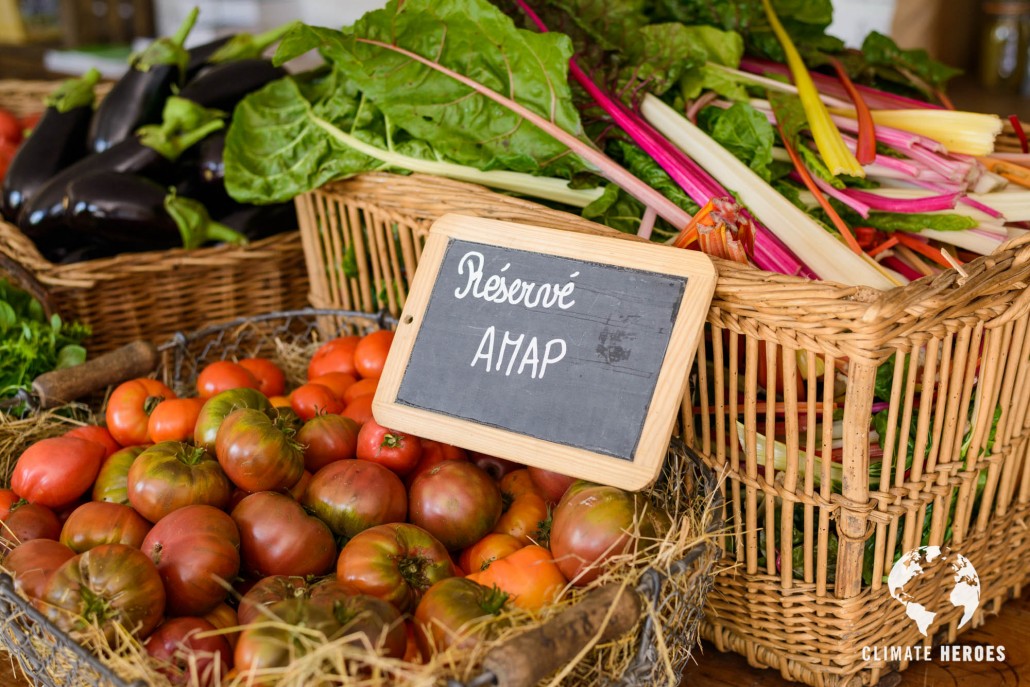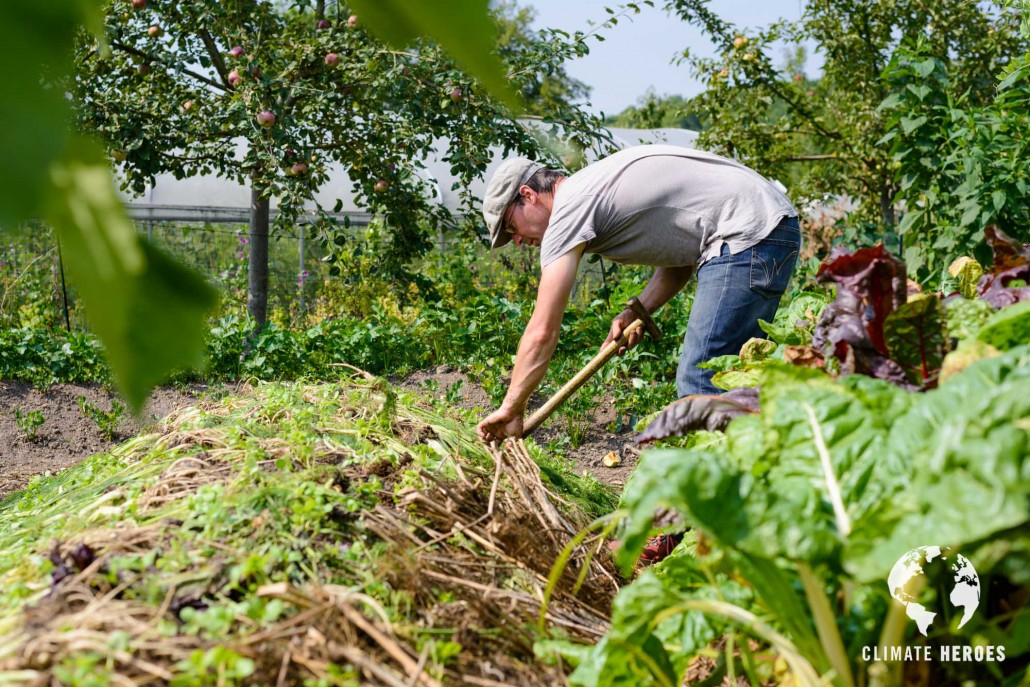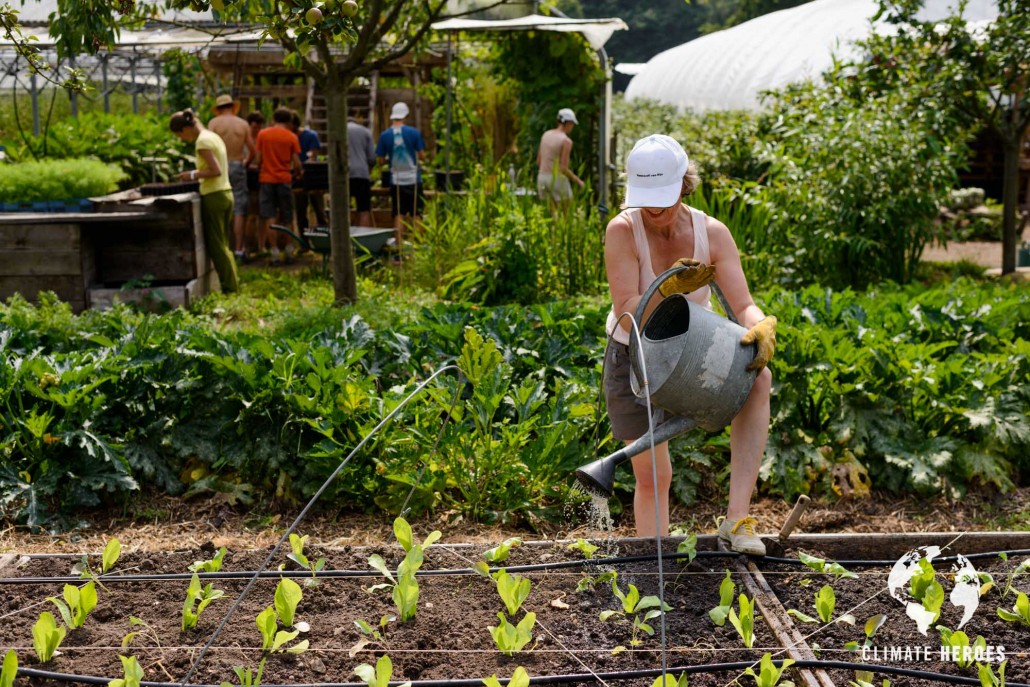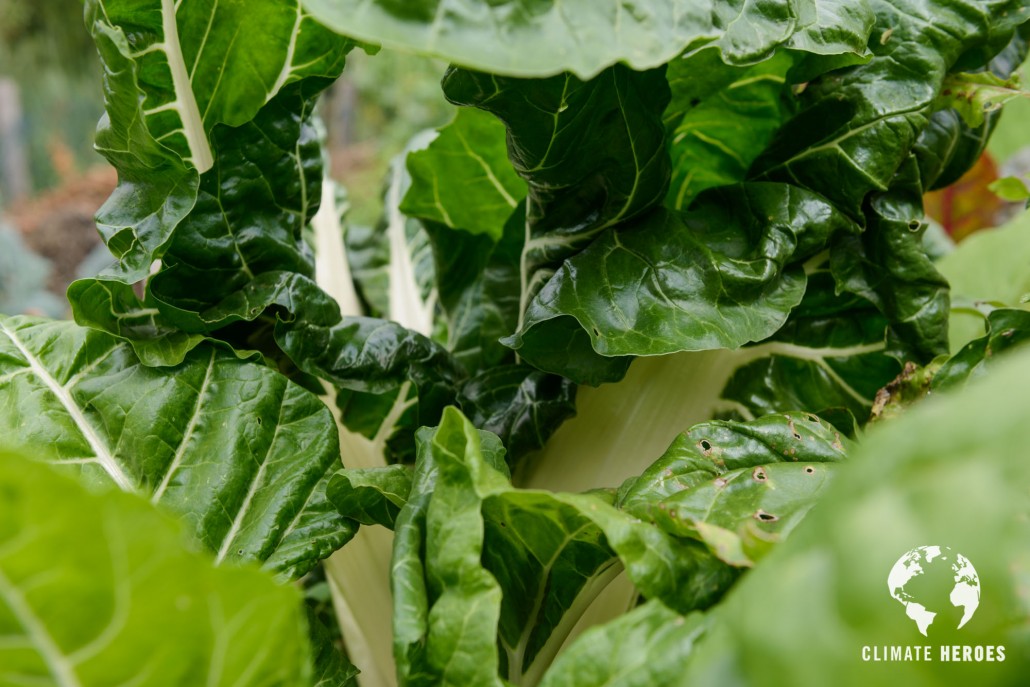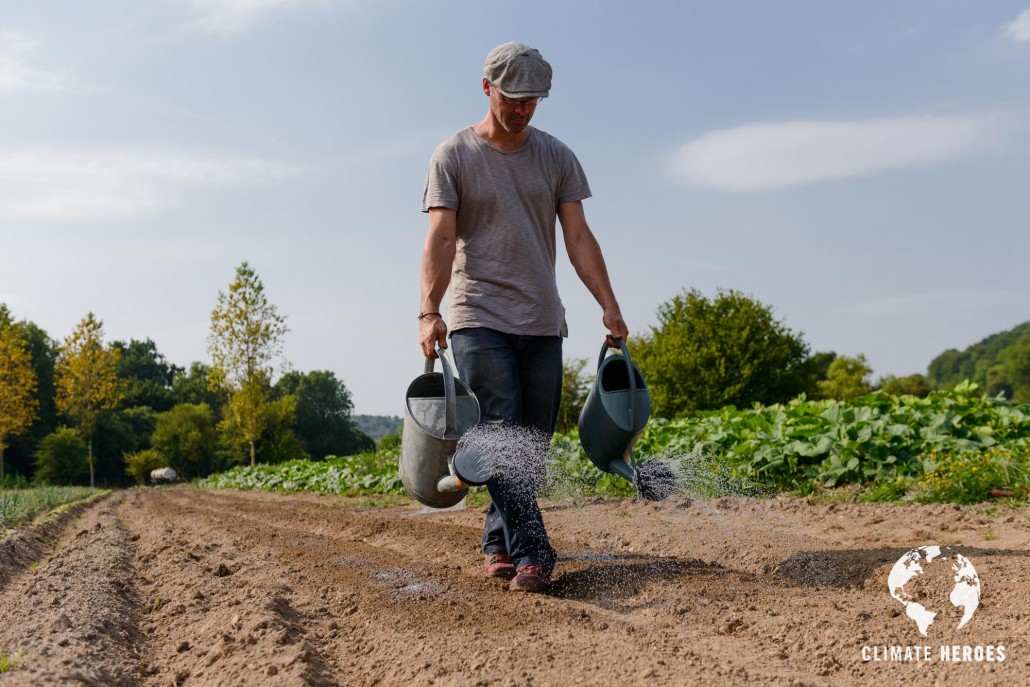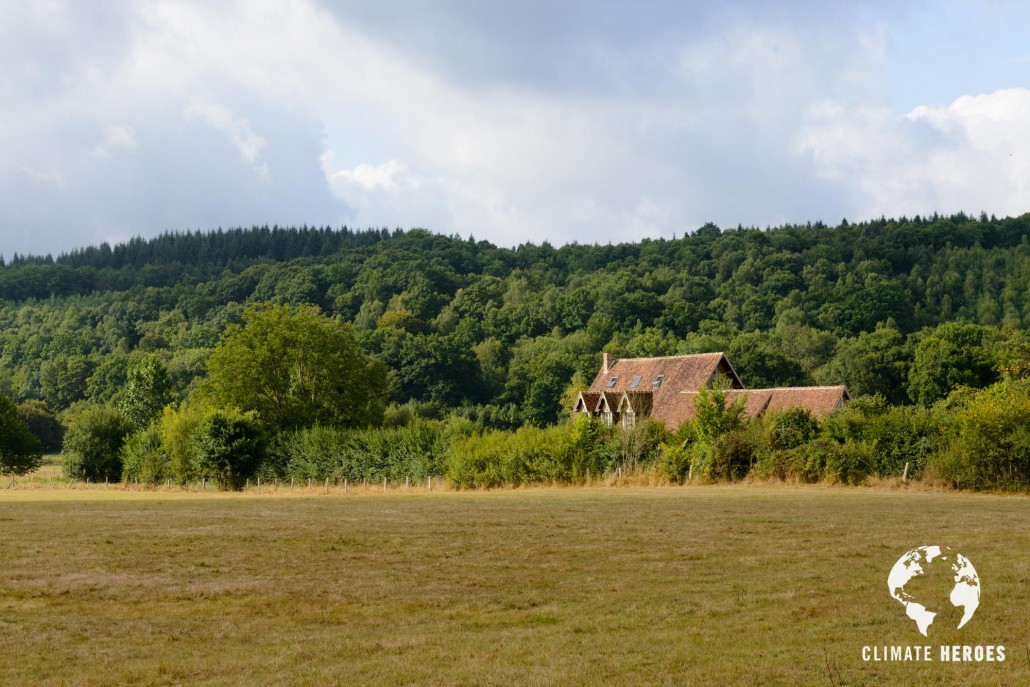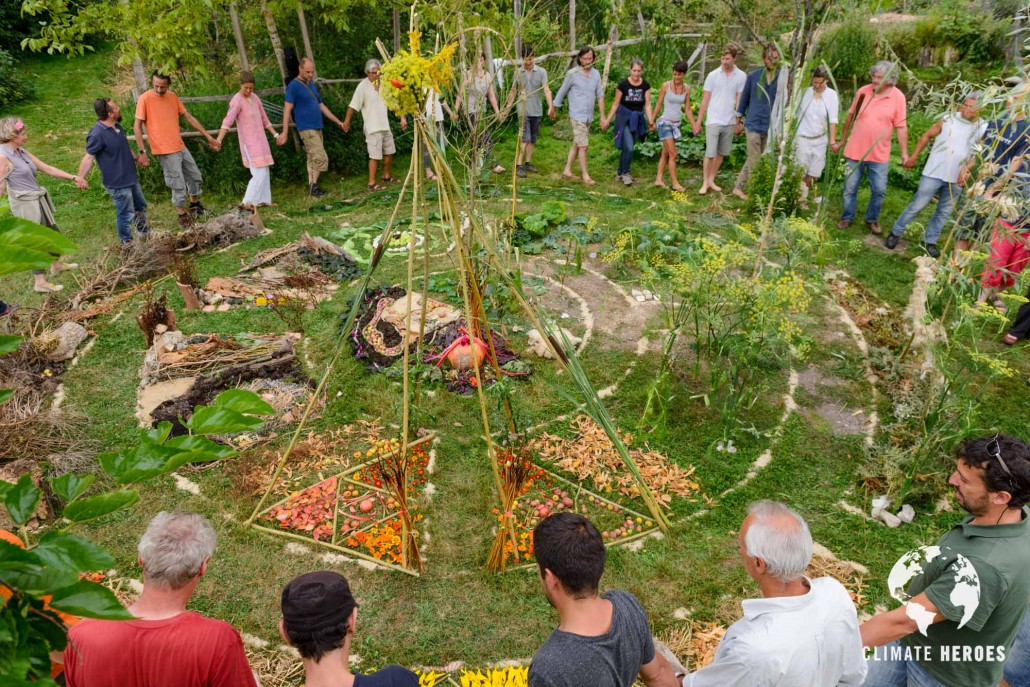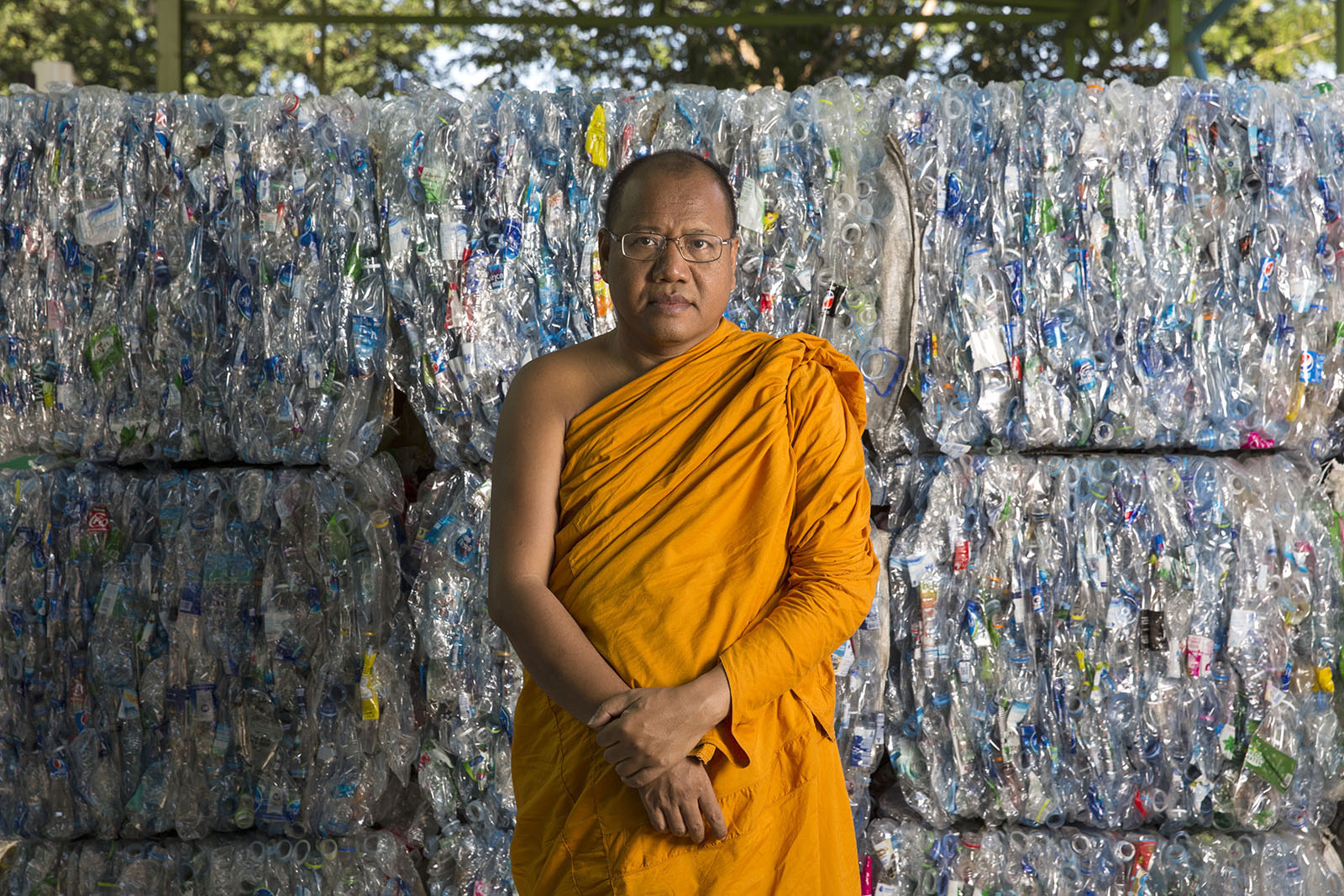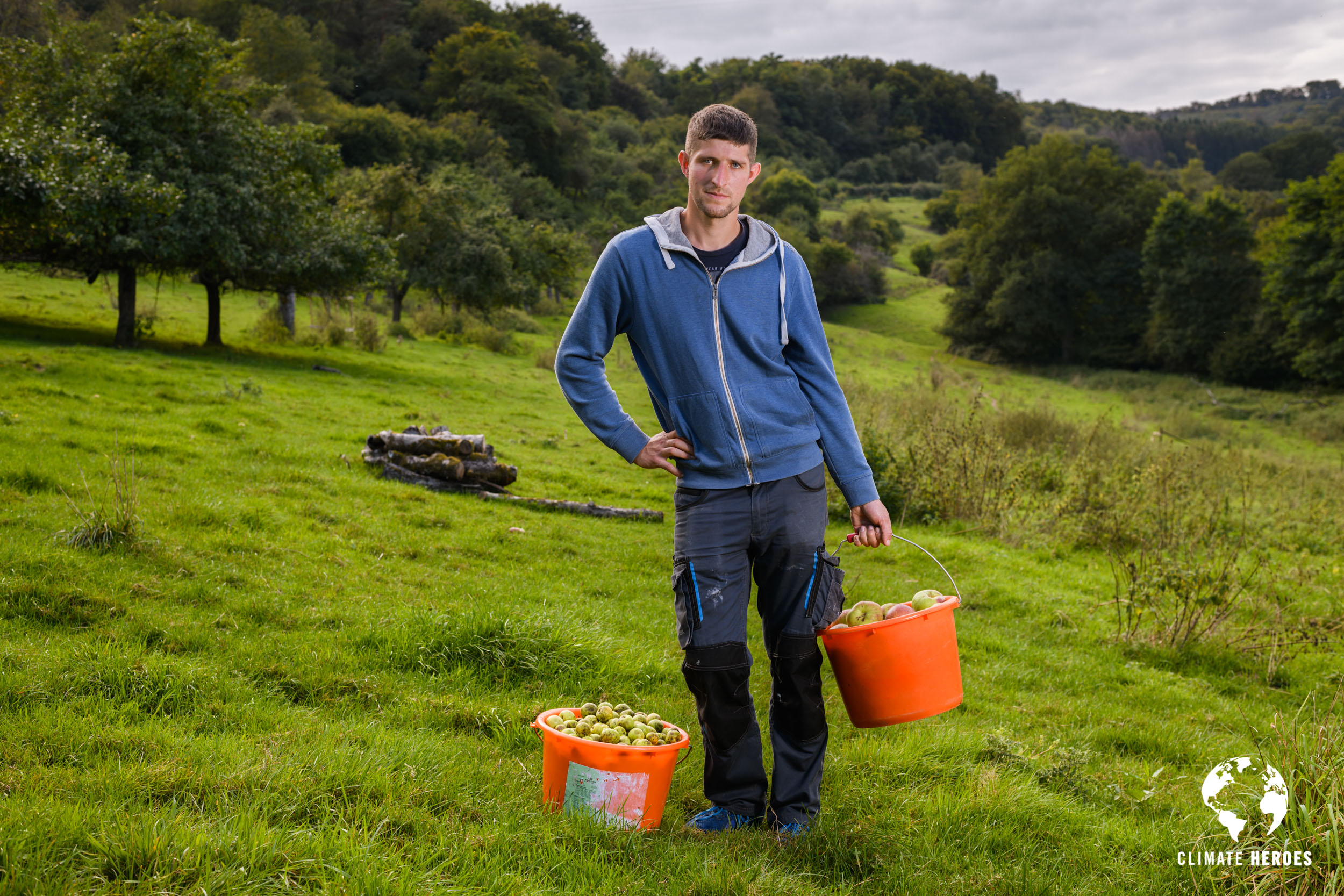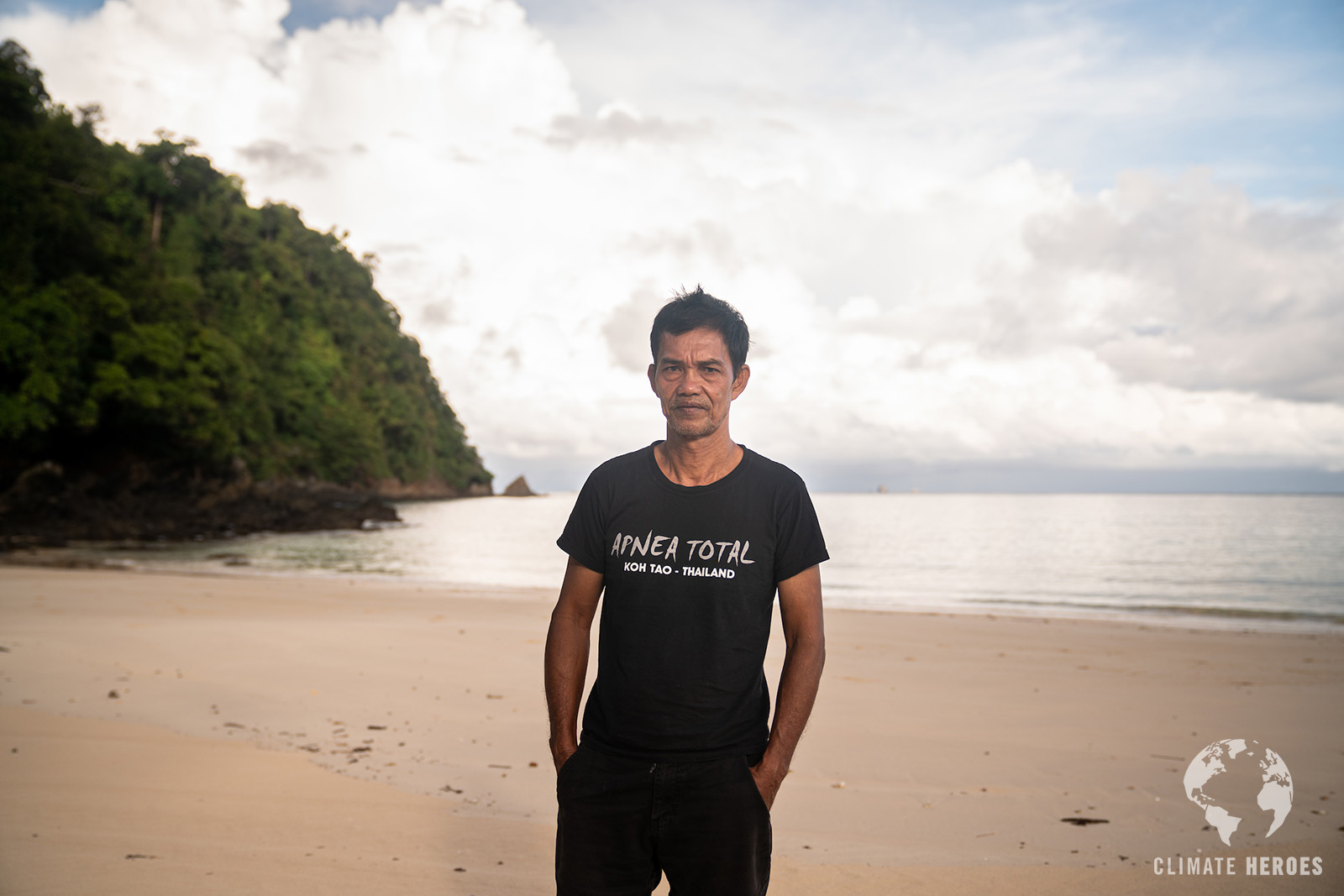Perrine and Charles Herve-Gruyer: Permaculture to feed us and heal the planet
This French couple have created a reference in vegetable and fruit productivity on their farm in Normandy, France, according to the principles of Permaculture, without any fossil fuels and in total respect of nature.
The mission proved by no means straightforward. « We started this adventure with a disconcerting ingenuity », remembers Perrine, a former international lawyer. After years spent in Asia working for large multinationals, Perrine came back to France having lost all of her illusions about the consumerist model put forth by today’s society.
She met Charles, back in France too after a first life as a sailor and documentary director onboard his school sailing boat La Fleur de Lampaul, thanks to which he would take kids and teenagers to meet indigenous people during world tours, on far-away islands. Together, they planned on becoming body therapists. « I learned a tremendous amount from my ‘barefoot masters’, as I like to call them », remembers Charles. His own wisdom is tangible, acquired after 15 years of sailing and living close to some of the happiest civilizations of the planet, both thanks to their simplicity and communion with nature.
But it was an old dream of his to become a farmer. Starting on a patch of land acquired thanks to their savings, they stated making plans to become self-sufficient by growing their own food, according to the principles of organic agriculture. They began by researching and experimenting various techniques from all around the world, with many ups and downs, until one day, when they came across the concept of Permaculture, a holistic approach built upon principles such as: take care of the planet, feed mankind, and share the surplus. « All of a sudden, things started to align, and everything became simpler » in the words of Charles. Their past experiences and lives proved to be an incredible asset on this new path: « by trying to create something beautiful, nature has offered us incredible results in return. »
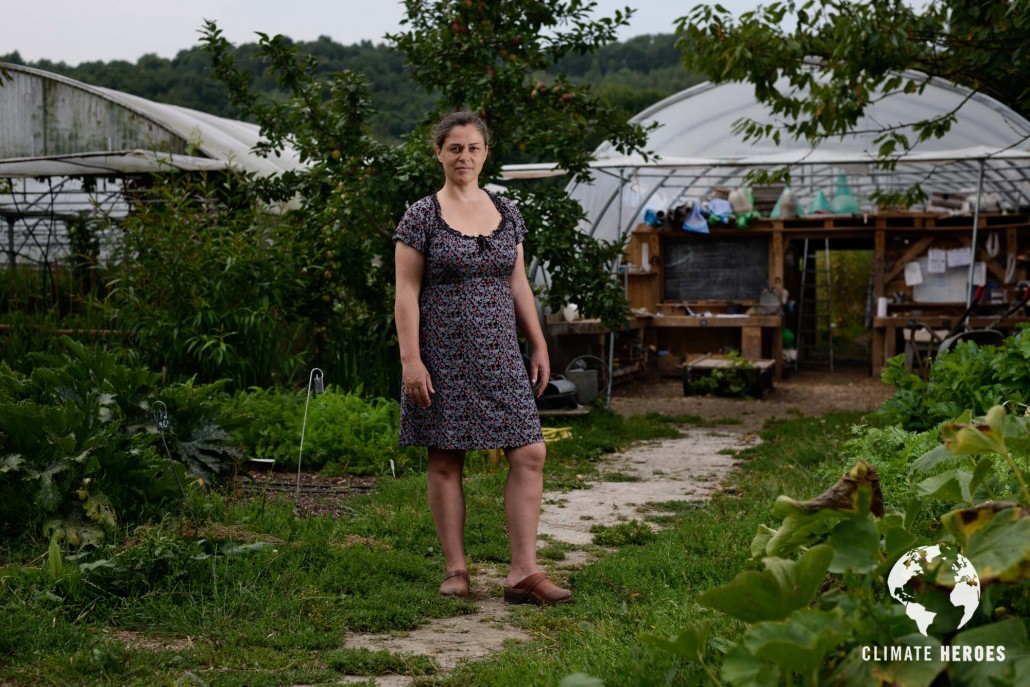
In 2011, with the support of a research team led by François Léger, teacher and researcher at AgroParisTech, they undertake a scientific study in order to assess the viability of their approach, and to measure the extraordinary productivity levels that they had witnessed on their land, modeled into cultivation mounds, garden-forests, or « Mandala Gardens ». « The result is that we can achieve enough output on a 1,000 square meter vegetable garden – split into 55% greenhouses and 45% open-air cultivation – in order to support one person full-time, with €54,300 net gross sales a year, only adding-up vegetable sales » explains Charles. « This is a wonderful validation of the micro-farm concept. We produce about 80 baskets of vegetables every week, in order to supply with the local AMAP (Associations pour le maintien d’une agriculture paysanne, or Association for the preservation of peasant agriculture), or sold directly to the public, here at the farm. »
The farm now provides work for 8 people, including vegetable and fruit production, and administrative and support functions. The farmers cultivate their small surface with love, which allows them to make the best of it. « And this is without any mechanical help, everything is done by hand, or with the help of the sun, but without any fossil fuel. We realize this is contrary to all the beliefs of the traditional agriculture model. Here we co-create with nature, and she is very generous in giving back », explains Charles.
« The most important result we can take away from the Ferme du Bec Hellouin, beyond the numbers – even if this level of productivity remains unrivalled considering the small surface considered – is the way to work with nature. Because replicating this exact same model elsewhere will be subject to variations, every field, every region, are different. This is not a magical recipe, but the underlying principles are here, and they are good. They can be adapted to help other farms » mentions François Léger. « We demonstrated that by working with nature, and not against it, we created a much more productive, and much more sustainable system. Of course, one farm alone cannot solve climate change, but if we replicated this in many more farms, working with this “ecological intelligence”, we would observe significant improvements and reduce the carbon footprint of the sector, while also proposing a global paradigm shift about our culture. These would allow us to make different economic choices, use more local food sources, which would make much more sense from the ecological standpoint, and create more wealth in the long run. »
The Ferme du Bec Hellouin demonstrates that another world is within reach. Each year, several hundreds of participants attend the permaculture trainings offered on the site. Whether they are former locksmiths, large-scale farm worker, landscape architect, or lawyer, all share a common search for greater consistency about the way we live on this planet, and how to feed ourselves healthily while preserving it for future generations.
« This is a question each one of us has to ask themselves: ‘What makes me happy?’ Is it accumulating objects, through the consumption model that our current society is dangling in front of us, or can we still learn something from those civilizations such as the Wayana in Guyana, who still live in harmony with nature and exhibit unrivalled happiness? » asks Charles. « Even the Parisian farmers from the 19th century, who worked inside Paris on tiny gardens, are amazing models of productivity, thanks to a full dedication to their task. I think we need to collectively invent a new way to live on this planet, and make a very deep change in our relationship to nature. »
